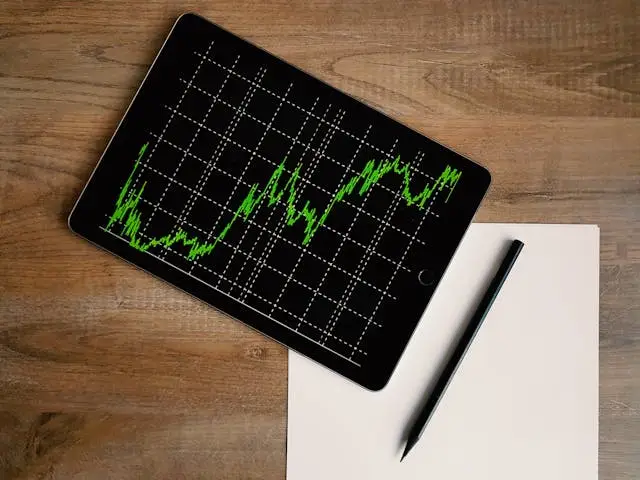Data is more than just numbers; it’s the lifeblood of economic research. Each shift in GDP or unemployment figures tells a story about the economy’s health. For those striving to excel in economic analysis, understanding these nuances is crucial. Even a slight error in interpreting inflation rates can lead to misguided policies or flawed market strategies.
At Rosenberg Research, we delve into vast datasets, from real-time stock exchanges to comprehensive IMF statistics. By meticulously analyzing these intricate data points, we provide insights that help clients accurately forecast economic shifts. Often, the integration of diverse sources reveals patterns that aren’t immediately apparent, emphasizing the value of deep exploration and advanced analytics.
The Foundation of Economic Analysis
Data is the cornerstone of economic analysis, much like ingredients are essential for baking a cake. Without accurate, reliable data, economists cannot make meaningful predictions or recommendations. Just as a doctor relies on tests to diagnose and treat a patient, economists use data to understand and forecast the health of an economy.
Driving Informed Decision-Making
Much like how a doctor requires a comprehensive understanding of a patient’s health, economists need a wide range of data to grasp the complexities of an economy. Indicators such as unemployment rates, inflation figures, consumer spending patterns, and stock market movements provide critical insights that guide decision-making in public policy and business strategy.
Accurate and up-to-date data allow economists to draw meaningful conclusions about the economy’s current state and future trajectory. This information supports timely adjustments in government policies, aids businesses in making strategic investment decisions, and helps individuals manage their finances effectively.
Influencing Economic Theories and Practices
Robust data enhances the reliability of economic theories and practices, much like new medical research informs doctors about treatment effectiveness. By analyzing historical data and identifying patterns, economists can develop predictive models for various economic factors, including inflation, unemployment, GDP growth, and market dynamics. These models enable better anticipation of potential economic shifts, facilitating proactive policy and strategy adjustments.
Impacting Global Insights
At Rosenberg Research, we understand that detailed analysis of comprehensive datasets is crucial for providing nuanced global economic insights. Our ability to harness intricate data sets enables us to offer clients informed perspectives on significant global economic trends.
These insights empower our clients to make well-informed decisions, anticipating and responding to changing market conditions. Our data-driven approach ensures that clients stay ahead of the curve in today’s dynamic economic landscape.
Common Data Sources in Economic Research
In economic research and analysis, data sources are fundamental. Economists rely on various datasets to gain insights into the complex factors influencing the economy. These sources form the backbone of economic projections, policy recommendations, and comprehensive reports that guide critical decision-making.
National Statistical Agencies
National statistical agencies, such as the U.S. Bureau of Economic Analysis (BEA) is a key source of economic data. These agencies collect, analyze, and disseminate crucial economic information, including national income and product accounts. Their data shapes our understanding of economic trends and informs government policies, business strategies, and academic research.
Financial Markets Data
Financial markets provide a wealth of real-time and historical data on financial transactions, market trends, and investment patterns. Stock exchanges and trading platforms offer insights into the pulse of financial markets, helping economists track investor sentiment and assess market dynamics’ impact on the broader economy.
International Databases
For a global perspective, international databases from institutions like the International Monetary Fund (IMF) and the World Bank are invaluable. These databases offer comprehensive economic data across a range of indicators, enabling cross-country comparisons and analyses of global economic trends. Such data is crucial for understanding the interconnectedness of international markets.
Surveys and Censuses
Surveys and censuses provide detailed insights into demographic trends, consumption patterns, and societal behaviors. Economists use these data sources to understand consumer behavior, employment dynamics, and regional disparities, adding context to their analysis of economic conditions.
Statistical Methods for Economic Analysis
In economic research, data isn’t just observed—it’s analyzed to uncover patterns, relationships, and make forecasts. Economists rely on several statistical methods to interpret this information. Let’s explore some key statistical methods used in economic analysis.
Regression Analysis
Regression analysis is a fundamental statistical method used to estimate relationships among variables. For instance, it helps economists understand how changes in interest rates impact consumer spending. By quantifying these relationships, regression analysis reveals how one variable affects another, such as the relationship between income changes and spending or saving patterns.
Time-Series Analysis
Time-series analysis involves examining data collected at specific intervals—daily, monthly, or yearly. This method helps economists identify trends, cycles, and seasonal variations in economic variables like GDP growth, inflation, or unemployment. For example, it can predict consumer spending spikes during the holiday season, aiding in economic forecasting.
Econometric Models
Econometric models combine economic theory with mathematics and statistical inference to quantify economic phenomena and test hypotheses. These models are essential for creating precise economic forecasts. At Rosenberg Research, we use advanced econometric models to understand complex interactions between economic variables and make accurate predictions about future trends.
Techniques for Accurate Economic Predictions
When it comes to making reliable economic predictions, one can’t rely on crystal balls or lucky guesses. What we need are solid techniques and tools that help us navigate through the complexity of economic trends and behaviors. So what are these techniques that play a pivotal role in forecasting?
Machine Learning Algorithms
Machine learning algorithms have transformed economic analysis by identifying complex patterns in extensive datasets. These algorithms, through methods like supervised, unsupervised, and reinforcement learning, can predict economic trends with higher accuracy than traditional methods. They are especially valuable in high-frequency trading, risk management, and financial forecasting, allowing institutions to adapt to changing market conditions and provide insights for informed decision-making.
Scenario Analysis
Scenario analysis involves creating multiple hypothetical scenarios to assess how different economic policies or external shocks might impact an economy. By evaluating these scenarios, economists gain a comprehensive understanding of potential risks and opportunities, enabling better strategic planning. This technique is vital for anticipating the effects of geopolitical events, trade policies, and environmental factors, helping organizations prepare for a range of possible outcomes.
Leading Indicators
Leading indicators, such as consumer sentiment indices and business investment figures, provide early signals of economic shifts. These indicators help economists assess the economy’s overall health and predict future developments. For instance, a rise in consumer sentiment may indicate increased spending and economic growth, while changes in business investment can signal corporate expansion or contraction plans.
At Rosenberg Research, we integrate machine learning algorithms, scenario analysis, and leading indicators into our analytical framework to deliver robust and actionable economic predictions. By leveraging these advanced techniques, we help clients navigate the complexities of the global economy with confidence.
Benefits of Data-Driven Economic Policies
Improved Decision-Making
Data-driven policies enable more informed decision-making by providing policymakers with reliable and relevant data. This allows them to address economic issues like poverty, unemployment, and inflation with precision. Instead of relying on intuition or anecdotal evidence, policymakers can create and implement strategies that align with current economic realities.
Enhanced Transparency and Accountability
Basing policies on concrete data naturally promotes transparency and accountability in policy formulation. This approach fosters public trust, as it becomes evident that decisions are grounded in tangible information rather than speculative guesses.
Economic Stability
Data-driven policies contribute to economic stability by allowing governments to predict and mitigate potential downturns proactively. This foresight enables the implementation of preventive measures that support sustainable growth, rather than merely reacting to crises.
Rosenberg Research’s commitment to data-driven insights aids in shaping policies that foster sustainable economic growth. By systematically analyzing diverse economic indicators, we help guide policymakers in crafting strategies that not only address immediate challenges but also contribute to long-term stability and prosperity.
Explore the Power of Data in Economic Research
Understanding the role of data in economic research is crucial for making informed decisions. At Rosenberg Research, we leverage comprehensive data analysis to provide unparalleled insights that help you navigate the complexities of the global economy. Ready to elevate your economic research and analysis?
Try our free trial today and discover how our data-driven approach can empower your decision-making process. Start your free trial now.


